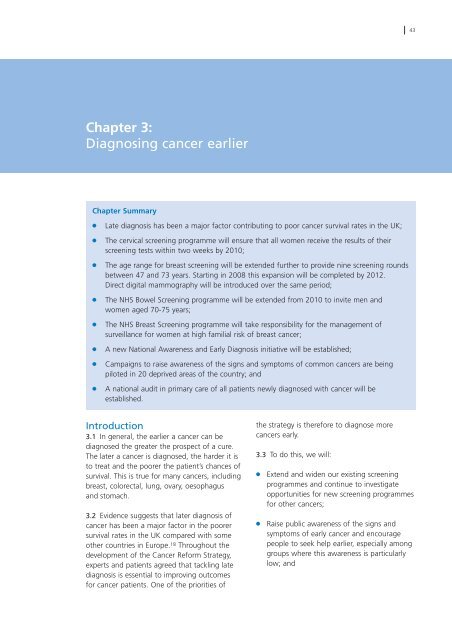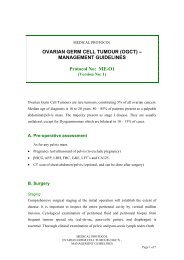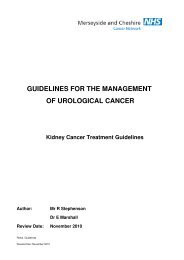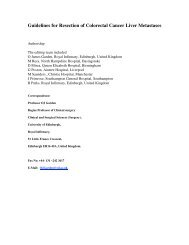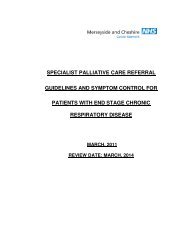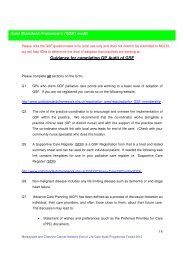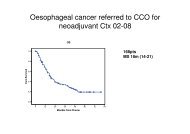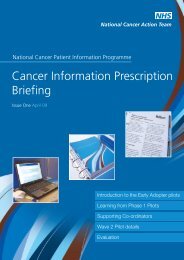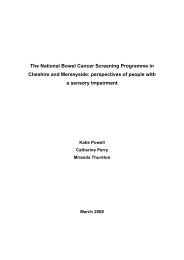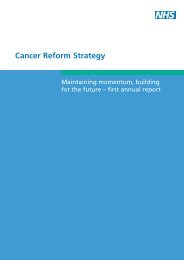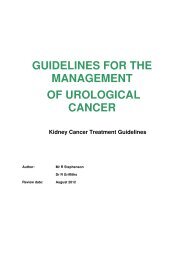Cancer Reform Strategy - NHS Cancer Screening Programmes
Cancer Reform Strategy - NHS Cancer Screening Programmes
Cancer Reform Strategy - NHS Cancer Screening Programmes
- No tags were found...
Create successful ePaper yourself
Turn your PDF publications into a flip-book with our unique Google optimized e-Paper software.
43Chapter 3:Diagnosing cancer earlierChapter Summary●●●●●●●●Late diagnosis has been a major factor contributing to poor cancer survival rates in the UK;The cervical screening programme will ensure that all women receive the results of theirscreening tests within two weeks by 2010;The age range for breast screening will be extended further to provide nine screening roundsbetween 47 and 73 years. Starting in 2008 this expansion will be completed by 2012.Direct digital mammography will be introduced over the same period;The <strong>NHS</strong> Bowel <strong>Screening</strong> programme will be extended from 2010 to invite men andwomen aged 70-75 years;The <strong>NHS</strong> Breast <strong>Screening</strong> programme will take responsibility for the management ofsurveillance for women at high familial risk of breast cancer;A new National Awareness and Early Diagnosis initiative will be established;Campaigns to raise awareness of the signs and symptoms of common cancers are beingpiloted in 20 deprived areas of the country; andA national audit in primary care of all patients newly diagnosed with cancer will beestablished.Introduction3.1 In general, the earlier a cancer can bediagnosed the greater the prospect of a cure.The later a cancer is diagnosed, the harder it isto treat and the poorer the patient’s chances ofsurvival. This is true for many cancers, includingbreast, colorectal, lung, ovary, oesophagusand stomach.3.2 Evidence suggests that later diagnosis ofcancer has been a major factor in the poorersurvival rates in the UK compared with someother countries in Europe. 18 Throughout thedevelopment of the <strong>Cancer</strong> <strong>Reform</strong> <strong>Strategy</strong>,experts and patients agreed that tackling latediagnosis is essential to improving outcomesfor cancer patients. One of the priorities ofthe strategy is therefore to diagnose morecancers early.3.3 To do this, we will:●●Extend and widen our existing screeningprogrammes and continue to investigateopportunities for new screening programmesfor other cancers;Raise public awareness of the signs andsymptoms of early cancer and encouragepeople to seek help earlier, especially amonggroups where this awareness is particularlylow; and


